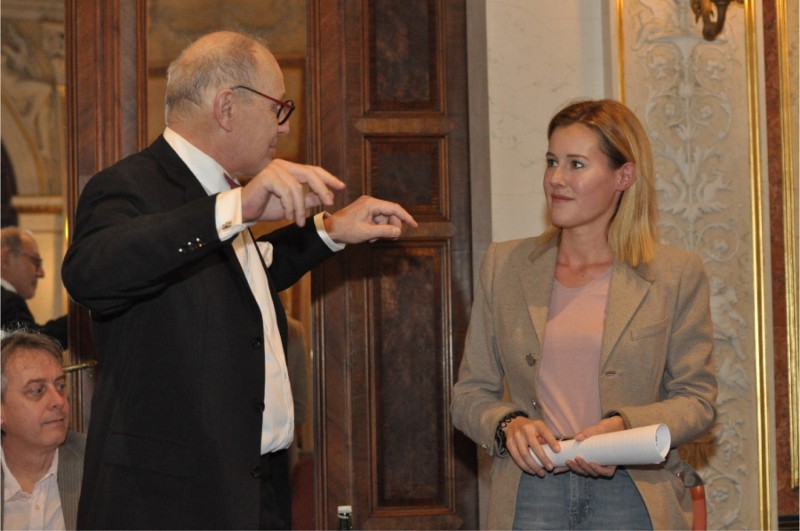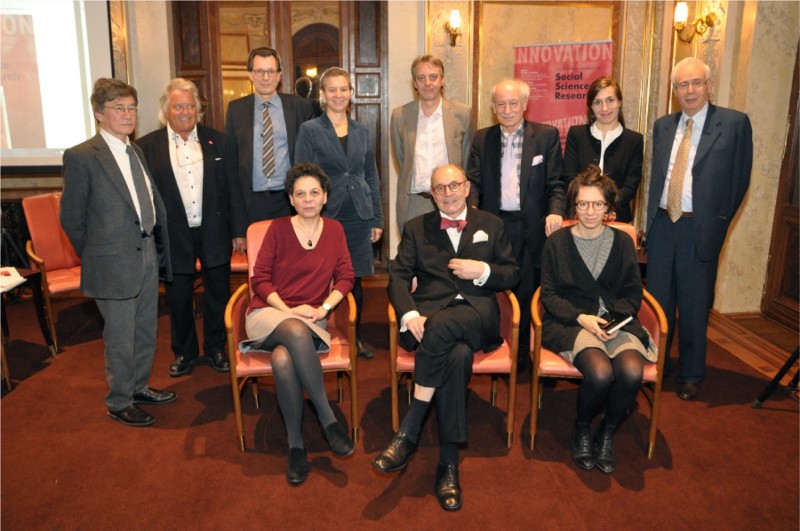Innovation is key for Europe’s competitivity, depends, however, on social acceptability as well. In the literature, there are various concepts, and the political use of the notion is quite vague. To go beyond the current state is the general idea behind this issue.
As social innovation policies are supposed to serve distinct policy goals, one can see them as a major challenge to politics and policies. Sebastiano Sabato, Bart Vanhercke & Gert Verschraegen shed light on the political use of “social innovation”. The authors take the example of the EU policies in the past decade and look at the relation between entrepreneurship and policy experimentation. Their main argument is that the EU policies already were stimulating social innovation before the notion was used in the political language. Whereas between 2006 and 2009, the notion did hardly, if at all, appear in the Commission’s rhetoric and policy papers the development of the Europe 2020 strategy changed this profoundly. Since 2010 social innovation has been explicitly integrated into the EUs growth strategy and related to “social entrepreneurship” and “social experimentation”.
Malin Lindberg & Jens Portinson Hylander look at social innovation understanding the concept as the mediation of existing conflicts. The authors use the boundary theory and the related idea of co-production of knowledge to analyse the development of a research and innovation agenda for social innovation in Sweden. The agenda was developed in Sweden as negotiation process between the different stakeholders from the public, the private and the non-profit sectors in a participatory manner. According to the authors, the understanding of the development of the policy agenda a “boundary object” allows for increasing the existing knowledge on institutional dynamics.
In their paper, Alfonso Unceta, Javier Castro-Spila & Javier García Fronti discuss the different modes of governance and more particularly the relationship between governance and social innovation in organizations. The authors identify three types of governance (social, inter-organizational and sustainable) in social innovation projects and test their model empirically.
Human capital is the basis for social innovation. In this respect, looking at migrant population is an important aspect of European innovation: what role plays the intensification of East-to-West migrant flows after the enlargements of 2004 and 2007. Based on a qualitative study, Karijn Nijhoff & Maria Cecilia Gordano develop a typology of four main dimensions derived from the literature. The contribution can be understood as an incentive for a major qualitative and even a quantitative study across Europe.
Based on macro-data minorities, Sabina Lissitsa, Svetlana Chachashvili-Bolotin & Ya’arit Bokek-Cohen look at the role of increased skills serves the integration of ethnic minorities: Can Digital Skills Raise Occupational Prestige among Ethnic Minorities? This leads them to look at the correlation between digital skills and occupational prestige among veteran Jews and two minority groups, namely Arabs and immigrants to Israel from the Former Soviet Union. Whereas digital skills contribute to the occupational prestige among veteran Jews and FSU immigrants beyond the classic socio-demographic factors, the gap in occupational prestige between veteran Jews and Arabs remains significant.
The use of ICTs is nowadays a day-to-day routine in science, research and innovation. Imme Petersen looks at the impact of the ever-increasing amount of data and the problematique of using and handling these data in an appropriate manner. The author’s contribution is a study on how to facilitate data management and the access and sharing of data on biological structures and processes as well as to link different databases from disparate data sources. ICT infrastructures play an important role in the systems biology community and are primarily regarded as service facilities to ease research activities. The downside of the role of the technologies is, however, that technology shapes the significance and meaning of data, practices and processes at the same time by defining how to handle data in ICT-driven science.
Nikolaos Kastrinos discusses the recent book “Writing the Rules for Europe: Experts, Cartels, and International Organizations” from a specific perspective from a foresight perspective. He starts from the observation that the interaction of knowledge about, and consciousness of, social structures lies at the foundations of social sciences. He points at the increasing role, and recognition of knowledge in European integration in the social science communities. This leads him to compare two different narratives on European integration that share a perspective on the key importance of knowledge: one is historical and academic in its origin, the other is future-oriented and policy-driven. His conclusion is quite convincing:
(…) [T]he only possible answer is a reinforcement of democracy and a harnessing of technical expertise in a stronger democratic framework. (…) [T]he future of the EU may rest in its ability to manage the tensions between technocracy and democracy.
Finally, our first contribution comes from Claudia Gamon, who was welcoming the participants of the “The structural change of knowledge & the future of social sciences”. You will find the contributions as Volume 30 (1) of this journal. We had the pleasure to celebrate the 30th anniversary of our journal. At this occasion, we published earlier this year a special issue and organized a symposium at the invitation of the Austrian Parliament and more particularly of the Speaker for Science and Research, MP Claudia Gamon. Besides myself distinguished speakers at the symposium were Andrew Sors, John Crowley, Liana Giorgi, Alice Vadrot, Stuart Blume, Hans-Liudger Dienel, Christiane Dienel and Nikolaos Kastrinos. Claudia Gamon delivered a nice welcome address to remind us of the Austrian tradition of the Social Sciences. Her contribution is published in this issue.
We invite our readers to consult the special issue dedicated to the 30th anniversary of the journal that give a quite comprehensive overview over pragmatic approaches to the social sciences and can be seen as a proof of the usefulness of interdisciplinary research.

The founder and editor-in-chief of Innovation – The European Journal of Social Science Research discusses the role of science in policy and politics with MP Claudia Gamon.

From left to right, standing: Stuart Blume, Hans Palme, Hans-Liudger Dienel, Christiane Dienel, John Crowley, Bernd Marin, Alice Vadrot, Andrew Sors
Sitting: Liana Giorgi, Ronald J Pohoryles, Dorothea Tommasi
